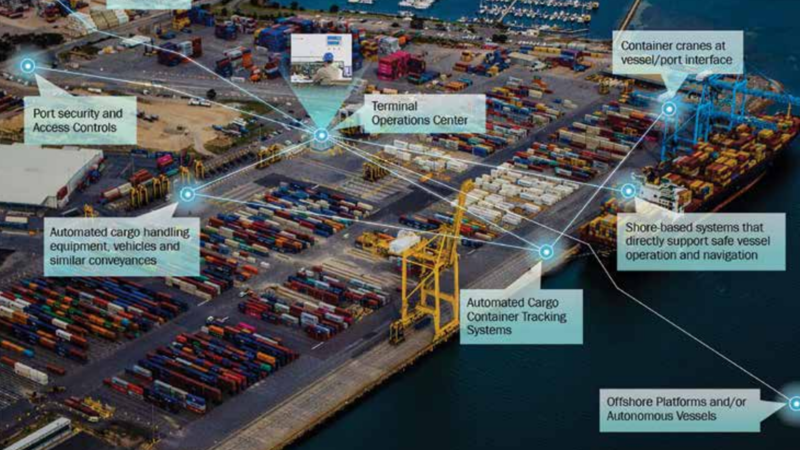According to the Department of Homeland Security (DHS) Office of Inspector General (OIG), the Marine Transportation System (MTS) “is the backbone of the U.S. economy,” integral to critical infrastructure. The OIG continues, saying that “about 90 percent of U.S. imports and exports travel by ship.” Unfortunately, a July 9, 2024, OIG report states that the U.S. Coast Guard is not doing enough to protect this critical infrastructure.
The report states, “The U.S. Coast Guard plays a lead role in securing and safeguarding the MTS, which facilitates the transport of nearly $5.4 trillion in commerce, representing about 25 percent of the U.S. gross domestic product. The waterways and ports that make up the MTS include 25,000 miles of coastal and inland waterways with 361 ports, 124 shipyards, and more than 3,,500 maritime facilities. The MTS is a prime target for malicious actors who seek to disrupt our supply chain. The use of new technologies, such as those for navigation, communication, and security, benefits the supply chain. However, these technologies are increasingly vulnerable to exploitation, misuse, or simple failure, which could cause injury or death, harm the marine environment, or disrupt vital trade activity. As of August 2021, the Coast Guard estimated hackers attacked the MTS every 39 seconds, for an average of 2,244 cyberattacks per day.”
As stated in the report, a failure to implement proper cybersecurity protections for the MTS could be catastrophic. The 2017 NotPetya ransomware attack is instructive because it highlights how catastrophic a cybersecurity failure can be. One of the biggest cyberattacks in history was reported by Wired in its 2018 article, “The Untold Story of NotPetya, the Most Devastating Cyberattack in History.” The June 27, 2017, malicious attack hacked into the computers of the shipping and logistics mogul A.P. Møller-Maersk, crippled the shipping giant. “A single piece of code crashed the world,” crippling ports, paralyzing corporations, and froze government agencies, according to Wired. Maersk’s empire includes ports, logistics, and drilling in 574 offices in 130 countries with 80,000 employees around the globe.
On that June day, an IT administrator named Henrik Jensen, who worked in the Maersk IT department, found himself in a frantic scramble to stay ahead of what would be a cascading catastrophe. According to Wired, Jensen was “busy preparing a software update for Maersk’s nearly 80,000 employees when his computer spontaneously restarted.” He initially assumed the reboot was a benign software change being implemented by central IT. However, Jensen soon “watched every other computer screen around the room blink out in rapid succession.” Jensen told Wired, “I saw a wave of screens turning black. Black, black, black. Black black black black black.” He and his colleagues soon realized “all computers were irreversibly locked. Restarting only returned them to the same black screen.” […]
— Read More: uncoverdc.com

It’s becoming increasingly clear that fiat currencies across the globe, including the U.S. Dollar, are under attack. Paper money is losing its value, translating into insane inflation and less value in our life’s savings.
Genesis Gold Group believes physical precious metals are an amazing option for those seeking to move their wealth or retirement to higher ground. Whether Central Bank Digital Currencies replace current fiat currencies or not, precious metals are poised to retain or even increase in value. This is why central banks and mega-asset managers like BlackRock are moving much of their holdings to precious metals.
As a Christian company, Genesis Gold Group has maintained a perfect 5 out of 5 rating with the Better Business Bureau. Their faith-driven values allow them to help Americans protect their life’s savings without the gimmicks used by most precious metals companies. Reach out to them today to see how they can streamline the rollover or transfer of your current and previous retirement accounts.


